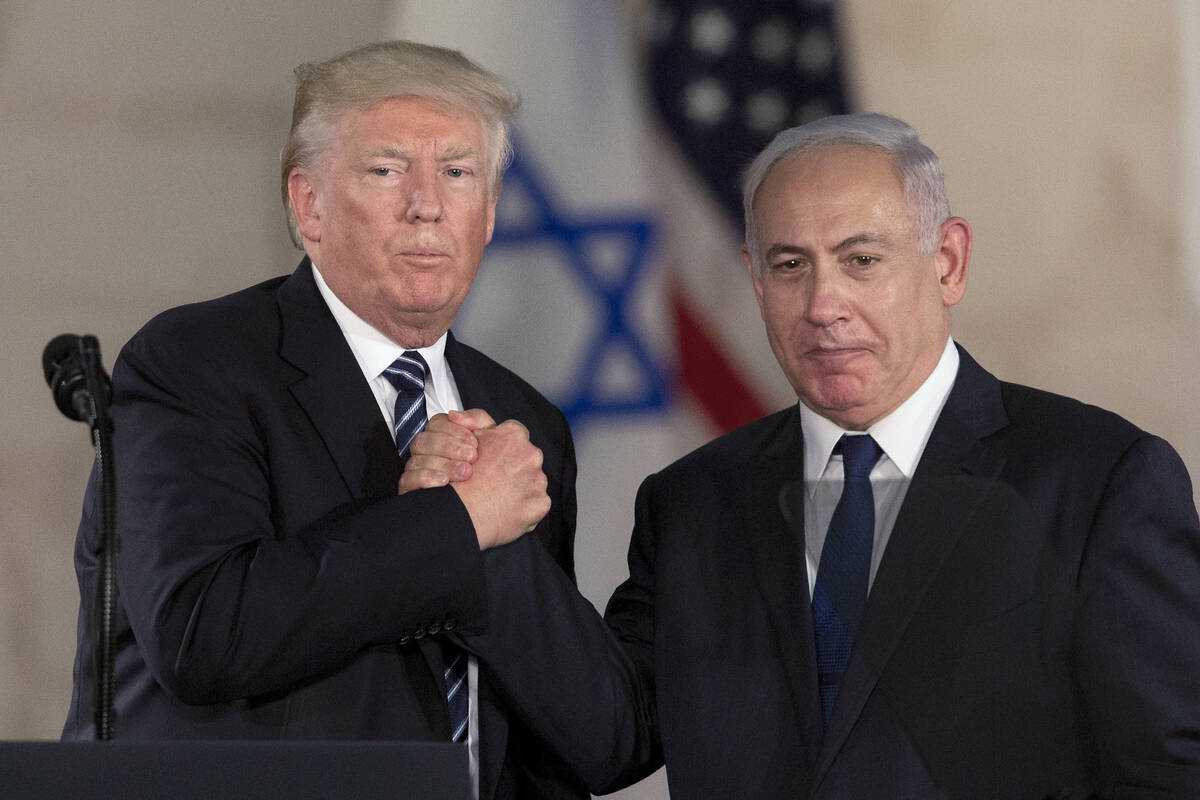Trump may be a boon for Netanyahu, but challenges abound in a changed Middle East

TEL AVIV, Israel — Shortly after Donald Trump’s win in last month’s U.S. election, Israeli Prime Minister Benjamin Netanyahu rushed to congratulate the president-elect: “History’s greatest comeback!” he gushed.
If Trump’s staunchly pro-Israel first term and his nominations for top administration positions are any indication, Netanyahu’s glee is justified.
But much has transpired since Trump left office in early 2021. The wars in the Middle East, the lofty ambitions of Netanyahu’s far-right governing coalition and Netanyahu’s personal relationship with him could dampen that enthusiasm and complicate what on the surface looks like a seamless alliance.
“For Bibi, this is his dream. He wanted this,” said Mazal Mualem, an Israeli journalist and Netanyahu biographer, referring to the Israeli leader by his nickname. “For Bibi, it’s too good to be true.”
During Trump’s first term, he adopted policies largely favorable to Netanyahu. Trump broke with longstanding U.S. policy to recognize Jerusalem as Israel’s capital, moving the U.S. Embassy to the contested city over Palestinian objections.
He recognized Israel’s claim to the Golan Heights, which the international community considers occupied Syrian territory. He also turned a blind eye to Israeli settlement construction in the West Bank and presented a peace plan that would leave dozens of settlements intact.
At Netanyahu’s urging, Trump withdrew the U.S. from an Obama-era deal between world powers and Iran over its nuclear program and ramped up sanctions against Iran, while also killing a top Iranian general.
And in the final days of his presidency, Trump brokered a series of diplomatic deals between Israel and Arab countries, shattering a longstanding assumption that Arab countries would not normalize ties without progress on Palestinian statehood. The accords marked a major foreign policy achievement for Netanyahu.
Likely to top Netanyahu’s wish list this time around is for Trump to be tough against Iran or perhaps even provide Israel with the weaponry it needs for an effective strike against Iran’s nuclear program. Netanyahu will also want to see progress on normalization with Saudi Arabia, but he will seek to minimize Israeli concessions to the Palestinians in return. And he will likely expect Trump to give Israel a free hand in Gaza and not pressure it to withdraw troops, even under a ceasefire deal.
In the weeks since Trump’s re-election, Netanyahu and his allies have expressed hope that the good times will return after strained relations with the Biden administration.
“The belief for now is that Trump will deliver,” said Aviv Bushinsky, a former adviser to Netanyahu.
Netanyahu could certainly use the boost, especially after seeing his popularity drop after the Oct. 7, 2023, Hamas terrorist attacks.
Despite important battlefield gains against Hamas, including the death of its leader in October, and the recent ceasefire that ended nearly 14 months of fighting with the Lebanese terrorist group Hezbollah, opinion polls have repeatedly predicted that Netanyahu’s governing coalition would fall far short of a required majority to stay in power if new elections were held now.
Although the ceasefire with Hezbollah appears to be holding, Israel is still fighting in Gaza 14 months after the Hamas attack that triggered the war. Trump has indicated he wants Israel to wrap things up in the war-ravaged Palestinian enclave, but he hasn’t said what that might entail.